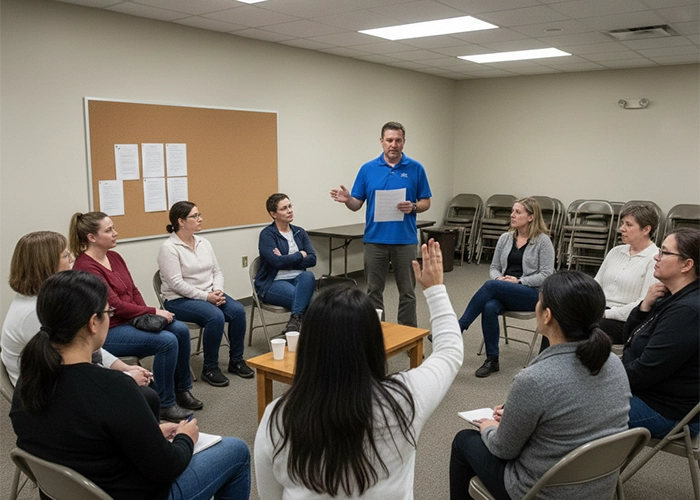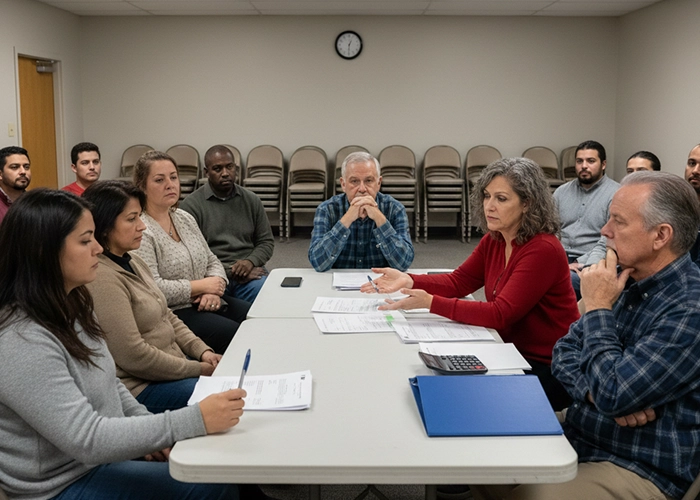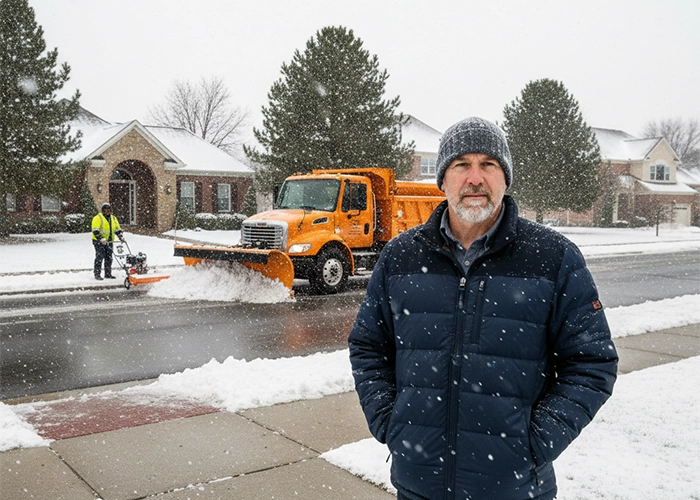What Constitutes An Illegal HOA Board Meeting?

Homeowners expect their board to follow clear, open meeting rules. When those rules are skipped, an illegal HOA board meeting can occur, and the decisions may be challenged. Understanding where meetings go wrong helps boards prevent mistakes and helps members protect their rights.
Browse By Category
Sign up for Our Newsletter
Homeowners expect their board to follow clear, open meeting rules. When those rules are skipped, an illegal HOA board meeting can occur, and the decisions may be challenged. Understanding where meetings go wrong helps boards prevent mistakes and helps members protect their rights.
What is an Illegal HOA Board Meeting?
An illegal HOA board meeting is any gathering or decision that violates state law or the association’s governing documents in a way that affects notice, openness, quorum, voting, or records.
Most states require open board meetings to be held with advance notice, a quorum present at the start, and minutes taken afterward. If the board acts outside those requirements, the action may be invalid or subject to reversal.
It is also possible to have an illegal meeting without a formal session. When directors make decisions via email, text, or a private phone tree, they risk crossing the line. In many states, back-channel decisions by HOA boards resemble illegal meetings, even if the board later “ratifies” them in public.
Notice and Agenda

Proper notice is the foundation of a valid meeting. Bylaws and statutes typically require a posted or delivered notice that specifies the time, date, location, and instructions on how to attend. Some states also call for an agenda or at least a brief subject line for significant items.
To minimize risk, send and post the notice within the required window. Include precise access details for in-person and remote attendance. When an agenda is necessary, describe the items well enough that owners can decide whether to attend. These small steps reduce disputes and keep the board far from an illegal HOA board meeting.
Open vs. Closed Executive Sessions
Executive session is a narrow tool. Boards may close the door on topics such as legal advice, personnel issues, confidential member discipline, certain collections, and sensitive negotiations. However, closing a meeting for budgets, policy debates, or routine business is usually not permitted.
A clear process helps. During a meeting, your HOA should announce the general reason for the closed portion, move into executive session only for that purpose. After that, you can return to the open meeting for any vote that must be taken in public.
If the discussion begins to drift into general business, pause and move that item back to the open agenda. Respecting these boundaries preserves trust and avoids the label of an illegal HOA board meeting.
Some of the typical topics discussed during an executive session include:
- Legal advice and litigation strategy
- Personnel and individual employee matters
- Member discipline, appeals, and certain collections
- Sensitive contract talks and real estate negotiations
Quorum and Voting That Hold Up

Quorum is not a formality. Without the required number of directors, the board should adjourn or set a new meeting. Voting must follow the bylaws and applicable law, including rules for remote participation, abstentions, and conflicts of interest.
Email and text votes create special risk. Many states allow directors to exchange information outside a meeting, but do not allow final votes that way. Some states permit unanimous written consent for limited situations, but the board must follow exact steps. Rubber-stamping a private email decision later invites challenge and can be treated as an illegal HOA board meeting in practice.
Workshops, Serial Talks, and Walking Quorums
Workshops can help boards learn and plan. They cross into illegal territory when directors discuss association business to reach an agreement. Serial one-on-one calls or group chats that move a decision across a quorum can be treated as a meeting under some statutes.
The clean approach is simple. Use workshops for education. Keep deliberation and action in a properly noticed open meeting. Place the decision on the agenda and vote in public so that owners can observe the process.
Off-Agenda Action and What Counts as an Emergency

When an agenda is required, voting on a major item that was not listed can be improper. Boards should defer substantive off-agenda items to a future meeting unless a true emergency exists under the statute or bylaws. Emergencies are rare. A missed vendor deadline or a routine renewal usually does not qualify.
If swift action is necessary, follow the emergency steps that your state or documents allow. Then add the matter to the next agenda to confirm the action in public. Doing this shows good faith and reduces future disputes.
Minutes, Records, and Member Access
Meeting minutes are not a transcript. They should show the motion, the maker, the seconder, the vote, and the outcome. Approve them at the next meeting and keep them available for member inspection, as permitted by law.
Good minutes prove that notice was sent, quorum existed, and votes were taken correctly. When a decision is questioned later, solid minutes are the board’s first line of defense against claims of an illegal HOA board meeting.
Remote and Hybrid Meetings Without Missteps

Remote meetings are now common, and they are valid when handled correctly. Notices should include clear access instructions and any login details. Directors must be able to hear and be heard at all times. Owners should have a fair chance to make comments if the state or rules provide an owner forum.
A brief checklist at the start helps. Take roll, confirm quorum, test audio, explain when owner comments will be heard, and describe how votes will be taken. With these basics in place, remote sessions run smoothly and remain far from an illegal HOA board meeting.
State-Specific Examples
When it comes to the legality of board meetings, themes are similar across the country, yet details vary by state.
In California, the Open Meetings Act for common interest developments requires open board meetings. The state allows executive sessions to be held for limited subjects such as litigation, personnel, contracts, discipline, and specific collections. California also places guardrails on email decision-making and expects minutes for both open and executive portions.
Meanwhile, Florida law generally requires open board meetings. It also allows board members to email for communication. However, voting by email is not permitted. A meeting occurs whenever a quorum gathers to conduct association business, including electronic gatherings.
In Texas, the Property Code sets detailed rules on open board meetings, notice, electronic meetings, and when a board may go into closed session.
Given the differences in approach by state, it’s best practice for boards to read state law in conjunction with the declaration, bylaws, and adopted policies to avoid the risk of an illegal HOA board meeting.
Being an Example
Clear process protects everyone. When the board follows notice rules, meets in the open, and keeps clean minutes, it avoids an illegal HOA board meeting and keeps the community’s business on solid ground.
Need assistance in organizing proper board meetings? Let professional HOA managers help you out! Check out our online directory today for your area’s best HOA management companies!
Related Articles:
- What Is The Purpose Of An Interim HOA Board?
- Managing HOA Reserve Funds: Best Practices For Board Members
- A Guide On How To Write HOA Board Meeting Minutes
Trending Now
Related Article
Sign up for Our Monthly Newsletter
Sign up below for monthly updates on all HOA Resource















